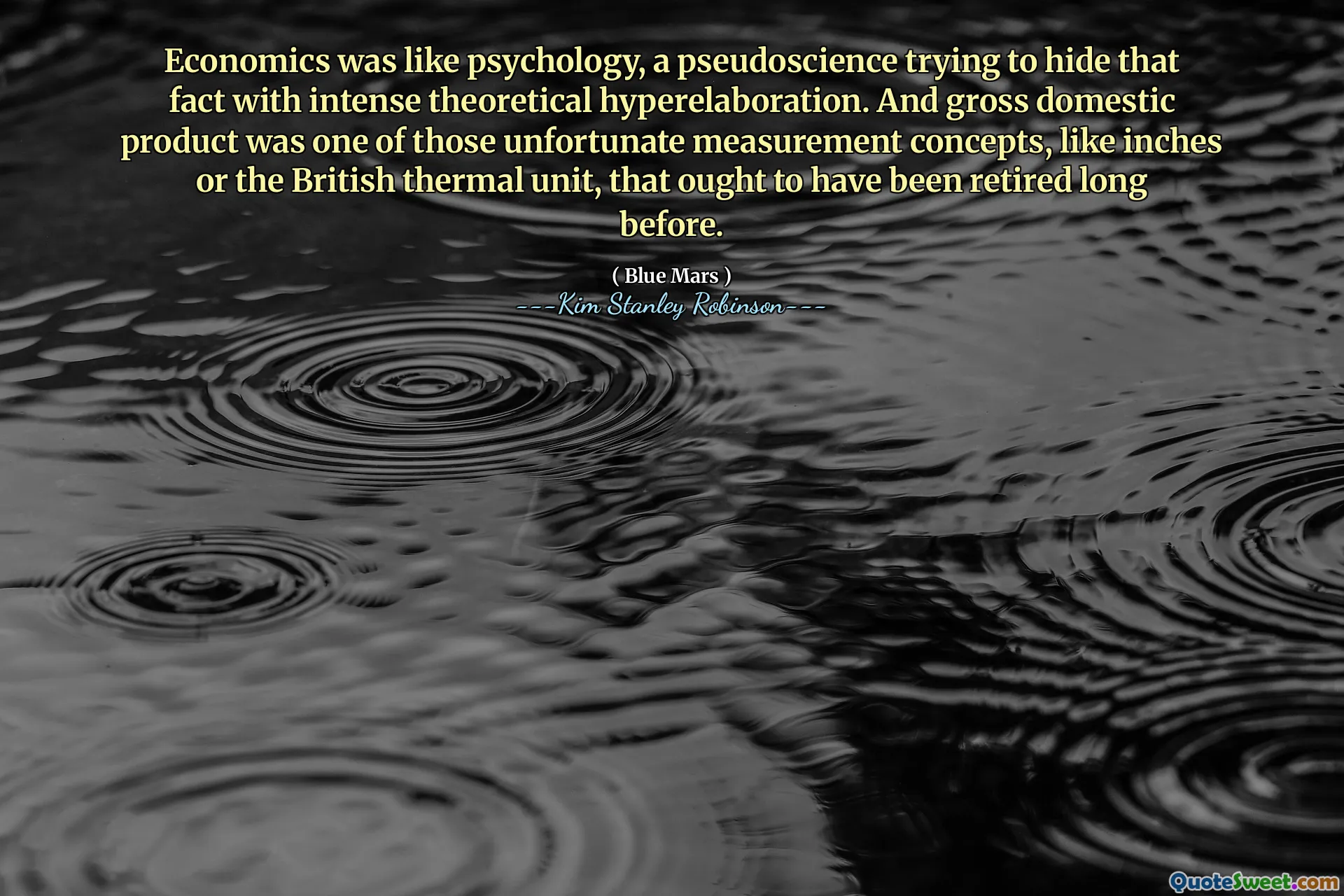
Economics was like psychology, a pseudoscience trying to hide that fact with intense theoretical hyperelaboration. And gross domestic product was one of those unfortunate measurement concepts, like inches or the British thermal unit, that ought to have been retired long before.
This quote offers a provocative critique of economics, suggesting it resembles psychology in its methodological shortcomings. The comparison implies that both fields attempt to present themselves as sciences through complex theories, yet they may lack the empirical rigor characteristic of the natural sciences. The mention of 'hyperelaboration' highlights how economic theories can become convoluted, perhaps obscuring core truths rather than clarifying them. The critique extends to measurement practices, exemplified by gross domestic product (GDP). The analogy stating GDP is like old measurement units — such as inches or BTUs— emphasizes that some measures might be outdated or insufficient in capturing a country's true economic health and societal well-being. This echoes debates about the limitations of relying solely on GDP, which ignores aspects like income distribution, environmental sustainability, and quality of life. The quote encourages a reevaluation of what we consider valid and comprehensive metrics for understanding complex social phenomena. It also invites reflection on the nature of scientific fields that rely heavily on abstract models and aggregated data, which, while useful, may distort or oversimplify reality. Overall, the statement challenges us to critically examine the foundations upon which economic policies and measurements are built, advocating for more meaningful, transparent, and holistic approaches. Especially in a world increasingly aware of ecological and social interdependencies, such skepticism is vital for fostering a more realistic and responsible understanding of progress and prosperity.


